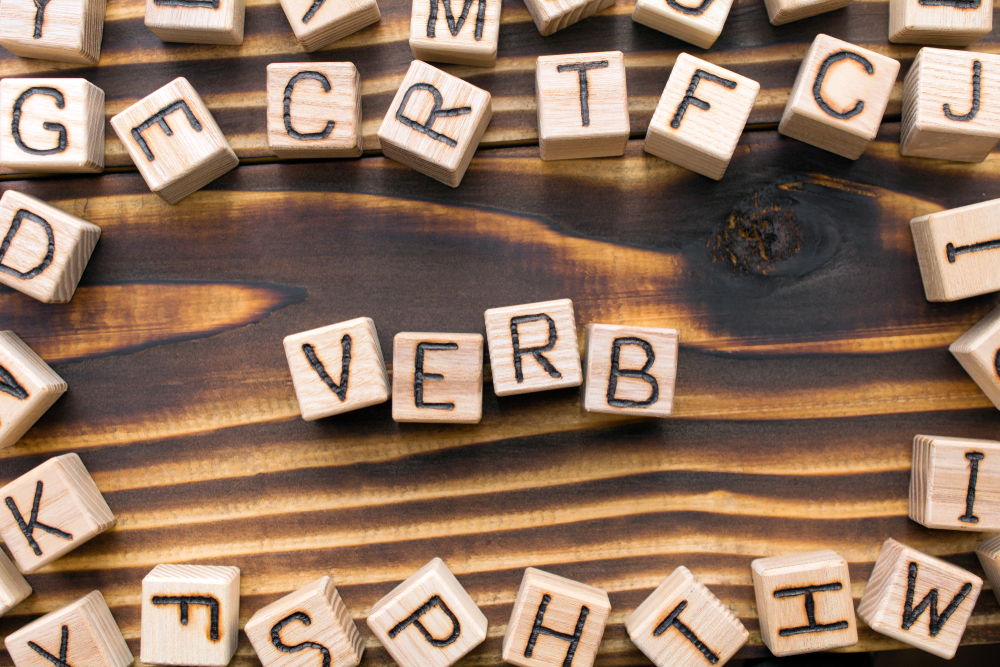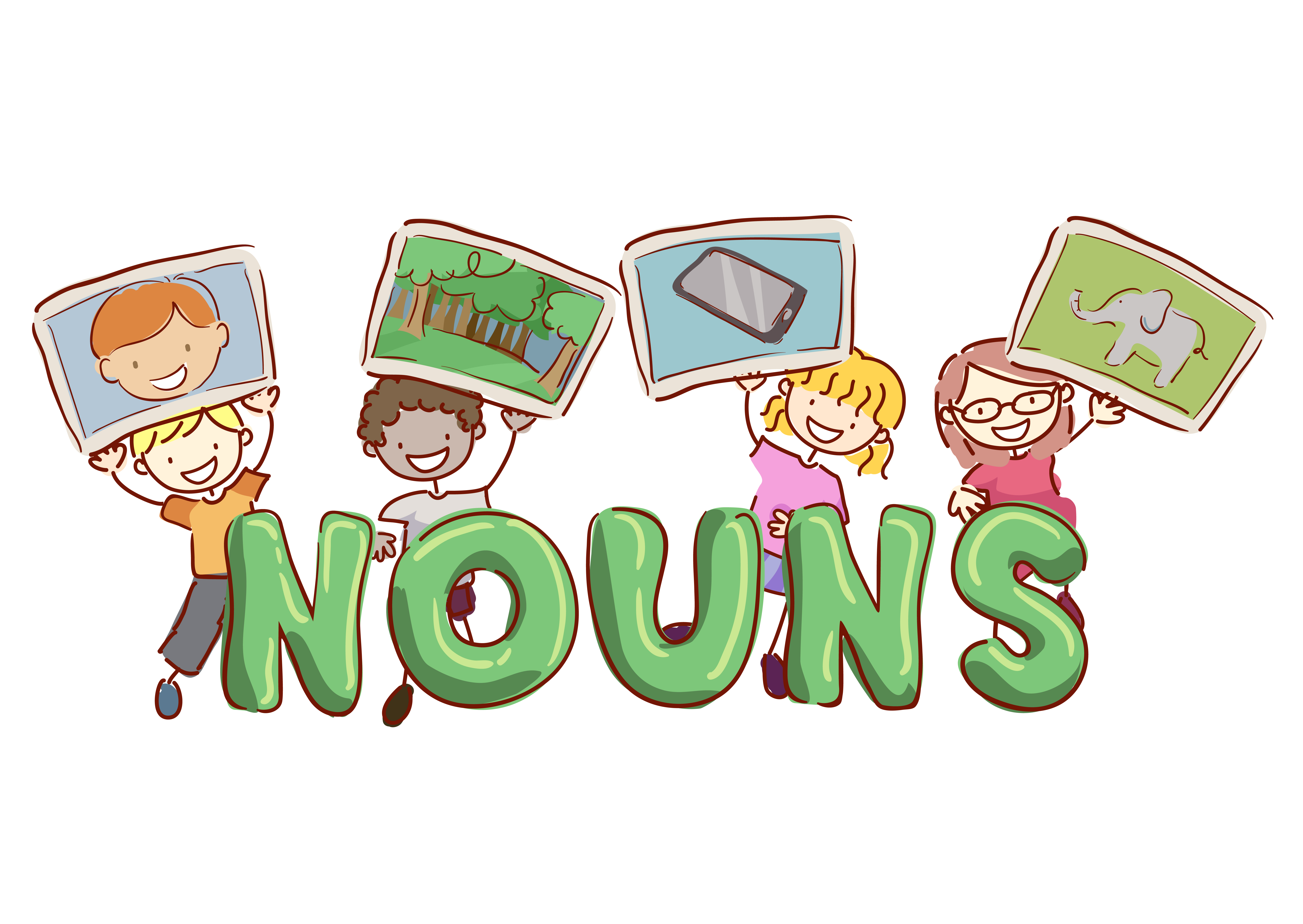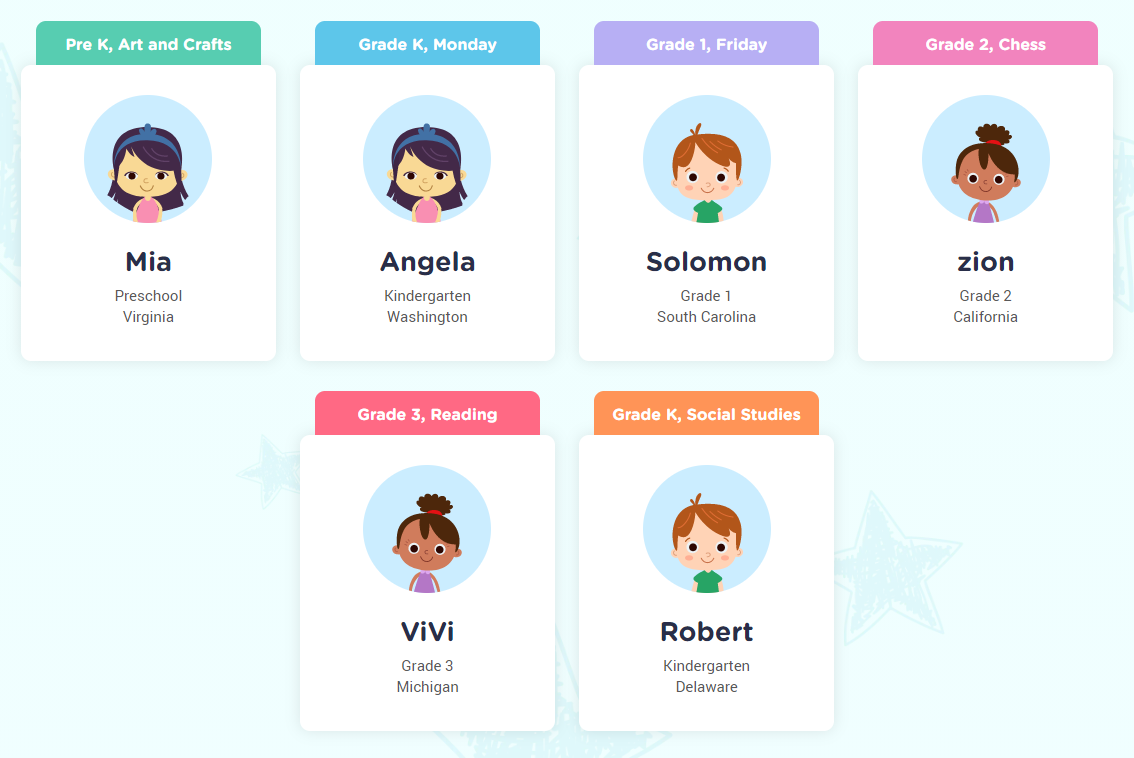Understanding time Easy Worksheets for Ages 3-6
3 filtered results
-
From - To
"Understanding Time" is an engaging collection of easy worksheets designed for children ages 3-6. These resources, offered by Kids Academy, focus on teaching young learners the foundational concepts of time—a critical early learning skill. Through fun and interactive activities, kids get to practice recognizing daily routines, sequencing events, and understanding basic time-telling. Perfect for both classroom and at-home learning, these worksheets are tailored to foster critical thinking and comprehension in an age-appropriate and enjoyable manner. Help your child master the concept of time with these expertly crafted and visually appealing learning tools.
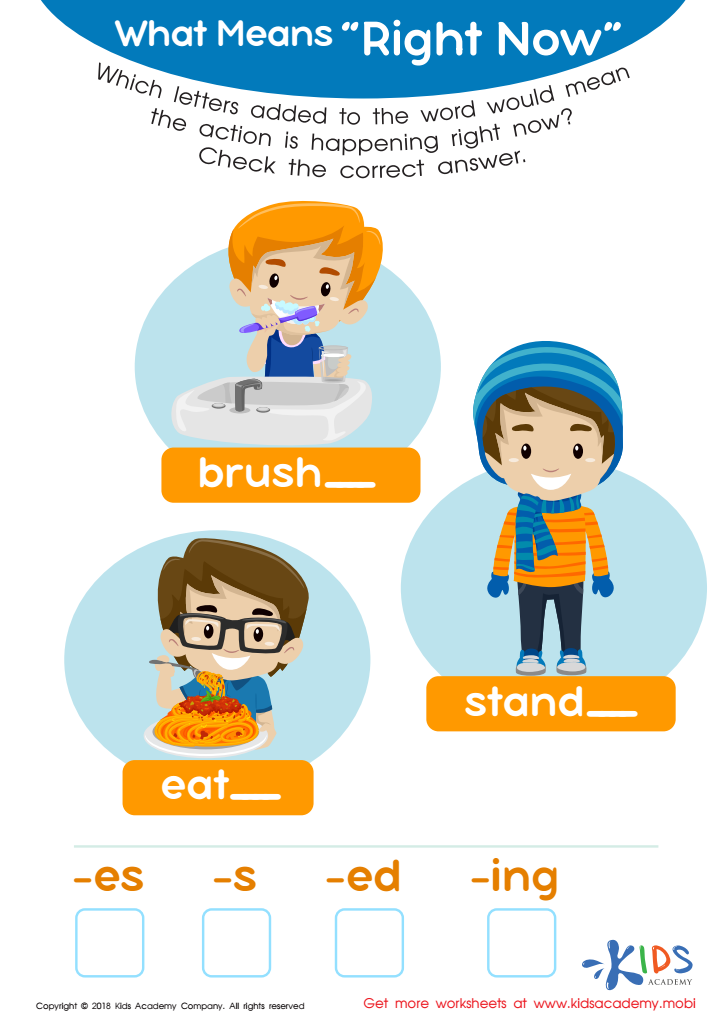

What Means "Right Now" Worksheet
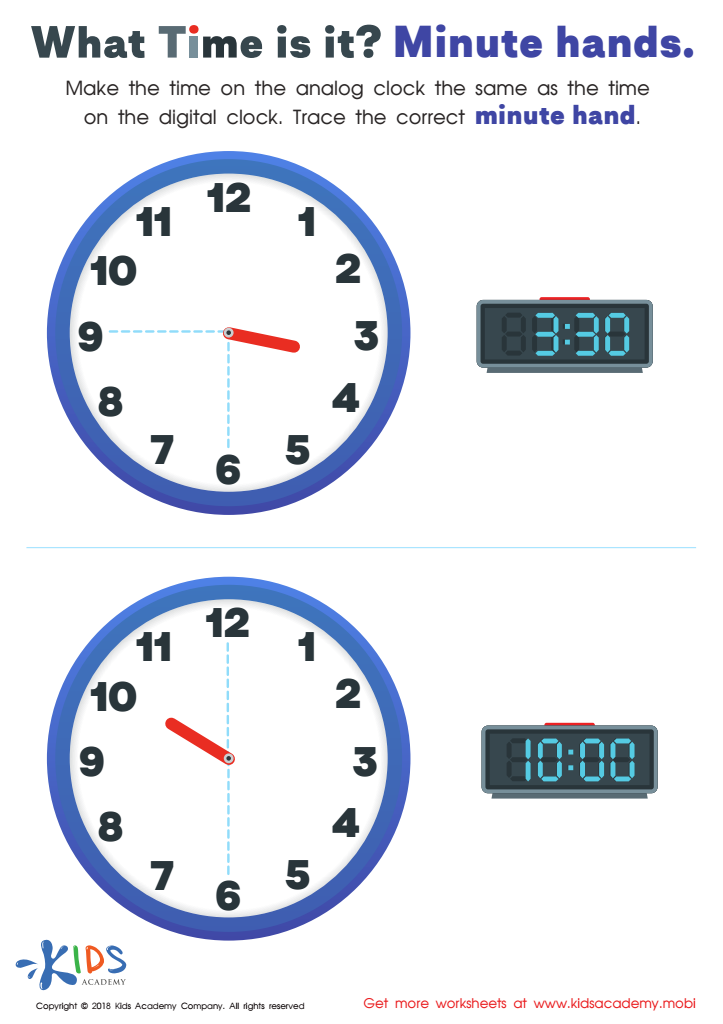

What Time Is it? Minute Hands Worksheet
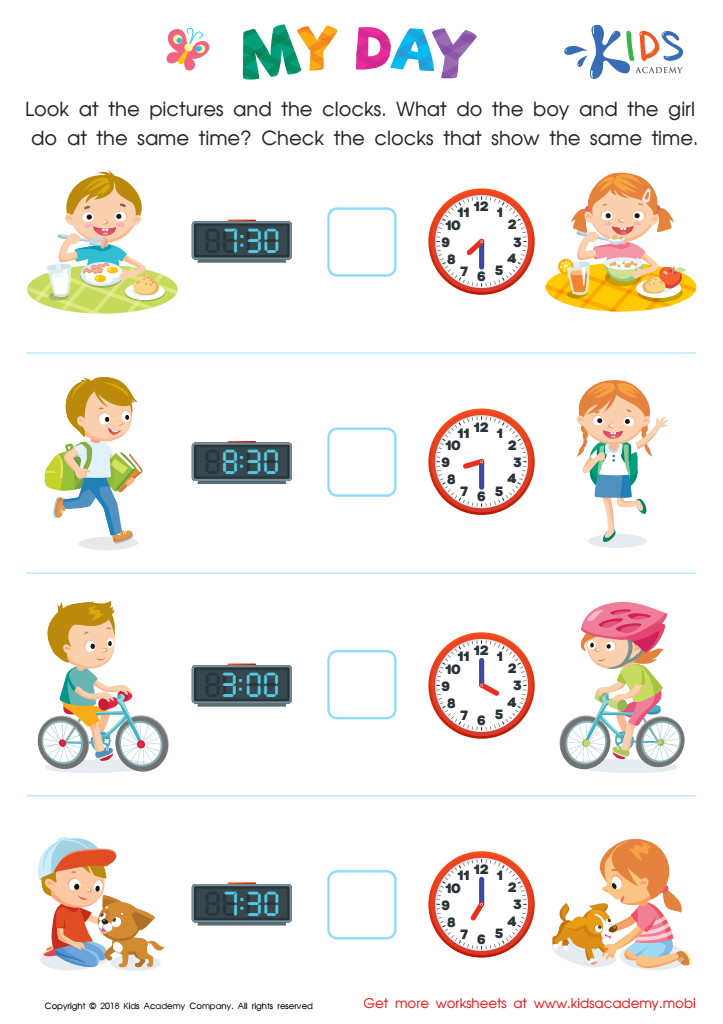

My Day Worksheet
For children aged 3-6, understanding the concept of time is foundational for their daily routines, cognitive development, and future academic skills. Parents and teachers can significantly benefit from making the concept of time easy and engaging for young minds.
Firstly, understanding time helps children establish routines. Recognizing that breakfast is in the morning, playtime is in the afternoon, and bedtime is in the evening helps them feel secure and organized. This sense of routine can contribute to better behavior and emotional stability.
Secondly, grasping time concepts enhances mathematical cognition. Early exposure to simple time-telling activities lays the groundwork for more complex mathematical skills they will encounter later. Clock reading introduces basic numerical skills and sequencing—which are crucial for math and science learning in higher grades.
Furthermore, time management skills become applicable as kids grow. Knowing how to divide time between activities can boost their productivity and aid in the development of self-discipline. Creating a fun and easy approach to teach them about time—using colorful clocks, visual schedules, and storytelling—makes the learning process enjoyable and deeply enriching.
Ultimately, mastering time concepts empowers children to be more independent and resourceful. Ensuring they understand time easily fosters both immediate behavioral benefits and long-term academic and personal success.

 Assign to the classroom
Assign to the classroom


